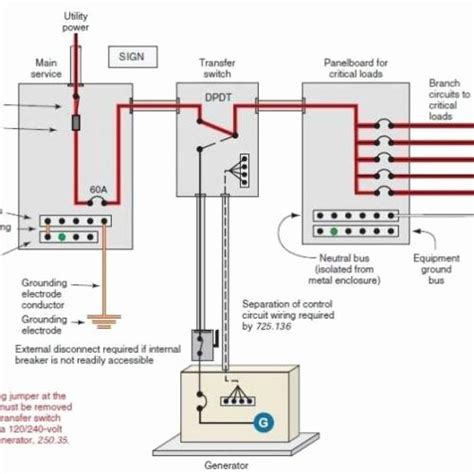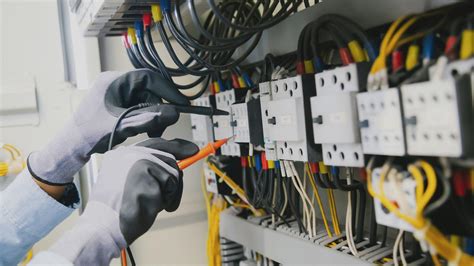do we need junction box for 90deg turn Anywhere you have wires spliced together, you need a junction box. Building codes require this protection because contact between wires can cause a spark. That's dangerous. With the X-CARVE Pro CNC Machine you're not just cutting wood, plastic, or foam – you're crafting pieces that transform spaces, tell stories, and bring your ideas to life. "As a beginner to CNC Inventables is easy to operate and has lots of projects and tools."
0 · wiring questions for inlet box to transfer switch
1 · electrical
2 · Sizing Junction Boxes
3 · Pull Box Required
4 · New Generator Circuit
5 · NEC Requirements for Sizing Junction Boxes and Pull Boxes
6 · Homeowners Ask: Are Junction Boxes Necessary?
7 · GFCI and ground for a gas stove? : r/HomeImprovement
8 · DIY Wiring: How to Safely Install and Use Junction Boxes
9 · A Full Guide on the NEC Electrical Codes for Junction Boxes
Learn how to get started woodworking and set up shop for less than $1000. Download my FREE GUIDE https://theweekendwoodworker.com/tww-.
Estimated 30 ft linear cable distance from inlet box entry location to transfer switch. My primary questions are on the recommended type of cabling, how I handle turns, and how I attach the cabling to the cinder block walls.
Vertical pulls present a completely different set of rules. Conductors are required to be supported. If you have a 500' straight vertical pipe run and pull in 500 Kcmil conductors . Is it allowed for a wire to go directly into a wall from PVC conduit (with some connector)? Or do I need to install a junction box? I've found plenty of raintight couplings and box connectors, so I'm good there. But I do need to make four tight 90 degree turns and I can't seem to find any elbow or conduit body . Anywhere you have wires spliced together, you need a junction box. Building codes require this protection because contact between wires can cause a spark. That's dangerous.
You must size pull boxes, junction boxes, and conduit bodies large enough so a crew can install the conductors without damaging them. For conductors 4 AWG and larger, .
wiring questions for inlet box to transfer switch
electrical
One essential component of DIY wiring is the junction box, a crucial element that ensures safe electrical connections. In this blog, we’ll guide you through the process of safely . The sizing requirements for pull boxes, junction boxes, handhole enclosures, and conduit bodies exist to prevent conductor insulation damage. Those requirements are in . I see no evidence 240V wiring (but I haven't looked in the wall or junction box). The adapters only serve to 1) turn the plug 90deg and 2) change from 3-prong to 2-prong. My . What Are the NEC Requirements for Junction Boxes and Enclosures? The NEC has outlined specific requirements for junction boxes to ensure the safety and proper installation of .
Estimated 30 ft linear cable distance from inlet box entry location to transfer switch. My primary questions are on the recommended type of cabling, how I handle turns, and how I attach the cabling to the cinder block walls. Vertical pulls present a completely different set of rules. Conductors are required to be supported. If you have a 500' straight vertical pipe run and pull in 500 Kcmil conductors you'll need a pull box every 50' to support the conductors. There is no junction box behind. The wires come out from a hole in the siding and are connected with wire nuts and tucked behind the light. Do I need to add some sort of junction box?

Is it allowed for a wire to go directly into a wall from PVC conduit (with some connector)? Or do I need to install a junction box? I've found plenty of raintight couplings and box connectors, so I'm good there. But I do need to make four tight 90 degree turns and I can't seem to find any elbow or conduit body that is specifically listed as raintight.
Sizing Junction Boxes
Anywhere you have wires spliced together, you need a junction box. Building codes require this protection because contact between wires can cause a spark. That's dangerous. Yes, the total degrees of all bends between junction boxes or conduit bodies can not exceed 360 degrees. This should be in each applicable wiring method article such as xxx.26. For example EMT is 358.26.
You must size pull boxes, junction boxes, and conduit bodies large enough so a crew can install the conductors without damaging them. For conductors 4 AWG and larger, you size pull boxes, junction boxes, and conduit bodies per Sec. 314.28. One essential component of DIY wiring is the junction box, a crucial element that ensures safe electrical connections. In this blog, we’ll guide you through the process of safely installing and using junction boxes, providing valuable insights for DIY enthusiasts. The sizing requirements for pull boxes, junction boxes, handhole enclosures, and conduit bodies exist to prevent conductor insulation damage. Those requirements are in 314.28, and they apply to all conductors 4 AWG and larger ( Fig. 1 ). Estimated 30 ft linear cable distance from inlet box entry location to transfer switch. My primary questions are on the recommended type of cabling, how I handle turns, and how I attach the cabling to the cinder block walls.
area sheet metal hobart indiana
Vertical pulls present a completely different set of rules. Conductors are required to be supported. If you have a 500' straight vertical pipe run and pull in 500 Kcmil conductors you'll need a pull box every 50' to support the conductors. There is no junction box behind. The wires come out from a hole in the siding and are connected with wire nuts and tucked behind the light. Do I need to add some sort of junction box? Is it allowed for a wire to go directly into a wall from PVC conduit (with some connector)? Or do I need to install a junction box? I've found plenty of raintight couplings and box connectors, so I'm good there. But I do need to make four tight 90 degree turns and I can't seem to find any elbow or conduit body that is specifically listed as raintight.
Anywhere you have wires spliced together, you need a junction box. Building codes require this protection because contact between wires can cause a spark. That's dangerous. Yes, the total degrees of all bends between junction boxes or conduit bodies can not exceed 360 degrees. This should be in each applicable wiring method article such as xxx.26. For example EMT is 358.26. You must size pull boxes, junction boxes, and conduit bodies large enough so a crew can install the conductors without damaging them. For conductors 4 AWG and larger, you size pull boxes, junction boxes, and conduit bodies per Sec. 314.28.
One essential component of DIY wiring is the junction box, a crucial element that ensures safe electrical connections. In this blog, we’ll guide you through the process of safely installing and using junction boxes, providing valuable insights for DIY enthusiasts.

Pull Box Required
Chain Link Fence 3" [2 7/8" OD] x 8" Wood to Steel Post Adapters | Adapter Brackets | Wood Fence Steel Post Bracket (Pack of 4)
do we need junction box for 90deg turn|Homeowners Ask: Are Junction Boxes Necessary?